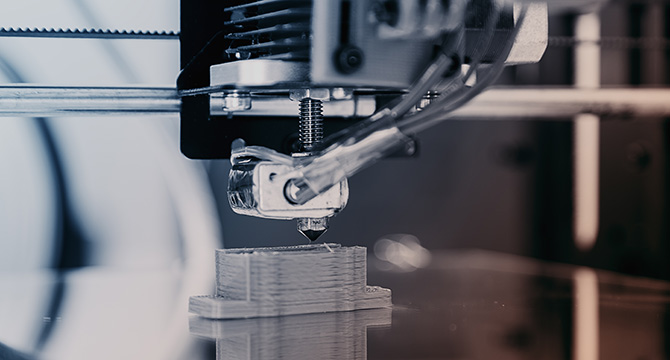
Additive manufacturing (aka 3D printing) has long been a growing part of the auto industry. Companies started out using 3D printing for prototypes and small batch production. As technology advanced, the role of 3D printing is rapidly increasing. This week, several major players in the auto industry announced new developments for the role of 3D printing in the industry. HP unveiled its “Metal Jet” 3D printers, which it describes as 50 times more productive, with lower operating and purchase costs than existing technology. HP has already partnered with suppliers in the auto industry on the technology, and GKN Powder Metallurgy is already using the printers in its factories.
VW is an early adopter of the Metal Jet, and its personalized gear shift knobs are already being printed using the Metal Jet. This week, VW announced additional plans to increase its 3D printing to further integrate printed parts into its overall manufacturing. VW is aiming for 100,000 printed parts in its supply chain each year.
VW has a history of pioneering in 3D printing. VW started 3D printing in 2014 in its Autoeuropa plant in Portugal, and in 2017, its related case study on 3D printed tooling that won awards throughout the world. And it has already had success with the Metal Jet run, according to the announcements this week. With the Metal Jet, VW did not need custom tooling for its personalized gear shift knobs, and it’s saving VW lead times and manufacturing costs.
As detailed in Deloitte’s Additive Manufacturing series, 3D printing has a long term growth trajectory in the auto industry. It presents opportunities for faster innovation in the industry, and faster time to market with changes. How far 3D printing will infiltrate the existing supply chain—and its limitations–has yet to be seen, but in August, Global Markets Insights, Inc. released a report projecting additive manufacturing, in the automotive market would exceed $8 billion by 2024. For now, HP, VW, and similar companies are leading the charge on making 3D printing part of their standard manufacturing process.
